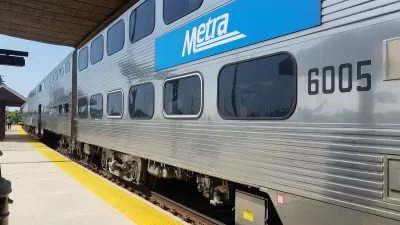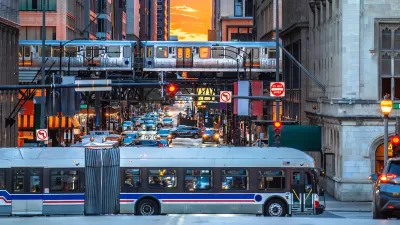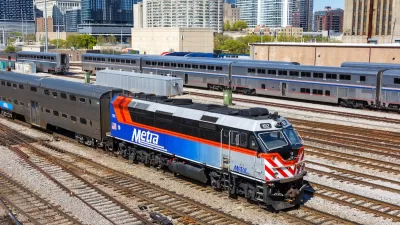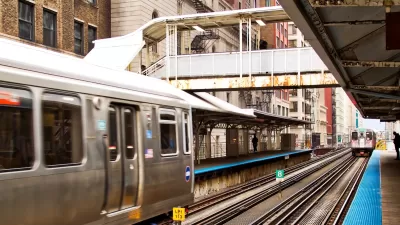Metra's significant drop in ridership has forced the agency to adapt to a new transit landscape and plan for equitable fare offerings and service changes.

Among Chicago-area transit agencies affected by the coronavirus pandemic, Metra has been hit the hardest, says regional transit advocate Scott Presslak. The agency, historically catering to white-collar Loop commuters, has experienced a 90% decrease in ridership and was forced to dramatically reduce service in the last 6 months.
"With the Loop a virtual ghost town, even workers who may have to go into the office a few times a week can find faster commutes on the expressways and cheap parking rates downtown," writes Presslak.
Presslak says Metra needs to reconsider it's current "wait-and-see approach" to adapting to the ridership decline and "address the growing racial and social inequities in our regional transit system."
Star:Line Chicago and Active Trans' 2019 Fair Fares Chicagoland report recommended several changes to promote a more equitable Metra fare offerings. Presslak notes that at Metra’s September board meeting, the agency considered updating line-by-line service restoration consistent with the report's recommendations.
Additionally, Romayne C. Brown will take over for Norm Carlson on Metra's board of directors. Brown, soon to be Metra's first female African-American chairperson "has already prioritized implementation of the South Cook Fair Transit pilot. This crucial project aims to lower fares for Metra Electric and Rock Island commuters on the South Side of Chicago and in the south suburbs while also promoting convenient transfers and integration with Pace and CTA," Presslak reports.
Presslak expresses for Metra's plans for improvement and urges the agency to move toward implementation.
FULL STORY: Metra must get past serving just white-collar suburban riders

Planetizen Federal Action Tracker
A weekly monitor of how Trump’s orders and actions are impacting planners and planning in America.

Congressman Proposes Bill to Rename DC Metro “Trump Train”
The Make Autorail Great Again Act would withhold federal funding to the system until the Washington Metropolitan Area Transit Authority (WMATA), rebrands as the Washington Metropolitan Authority for Greater Access (WMAGA).

DARTSpace Platform Streamlines Dallas TOD Application Process
The Dallas transit agency hopes a shorter permitting timeline will boost transit-oriented development around rail stations.

San Francisco's School District Spent $105M To Build Affordable Housing for Teachers — And That's Just the Beginning
SFUSD joins a growing list of school districts using their land holdings to address housing affordability challenges faced by their own employees.

Car-Centric LA Suburb Looks to a Train-Oriented Future
City leaders in Rancho Cucamonga, the future western terminus of the Brightline West rail line to Las Vegas, want to reimagine the city as a transit-oriented, pedestrian-friendly community.

New Alaska Bitcoin Mine Would Burn as Much Energy as the State’s Largest Coal Plant
Fueled by “stranded” natural gas, the startup hopes to become the largest in the US, and to make Alaska an industry center.
Urban Design for Planners 1: Software Tools
This six-course series explores essential urban design concepts using open source software and equips planners with the tools they need to participate fully in the urban design process.
Planning for Universal Design
Learn the tools for implementing Universal Design in planning regulations.
Municipality of Princeton
Roanoke Valley-Alleghany Regional Commission
City of Mt Shasta
City of Camden Redevelopment Agency
City of Astoria
Transportation Research & Education Center (TREC) at Portland State University
US High Speed Rail Association
City of Camden Redevelopment Agency
Municipality of Princeton (NJ)





























